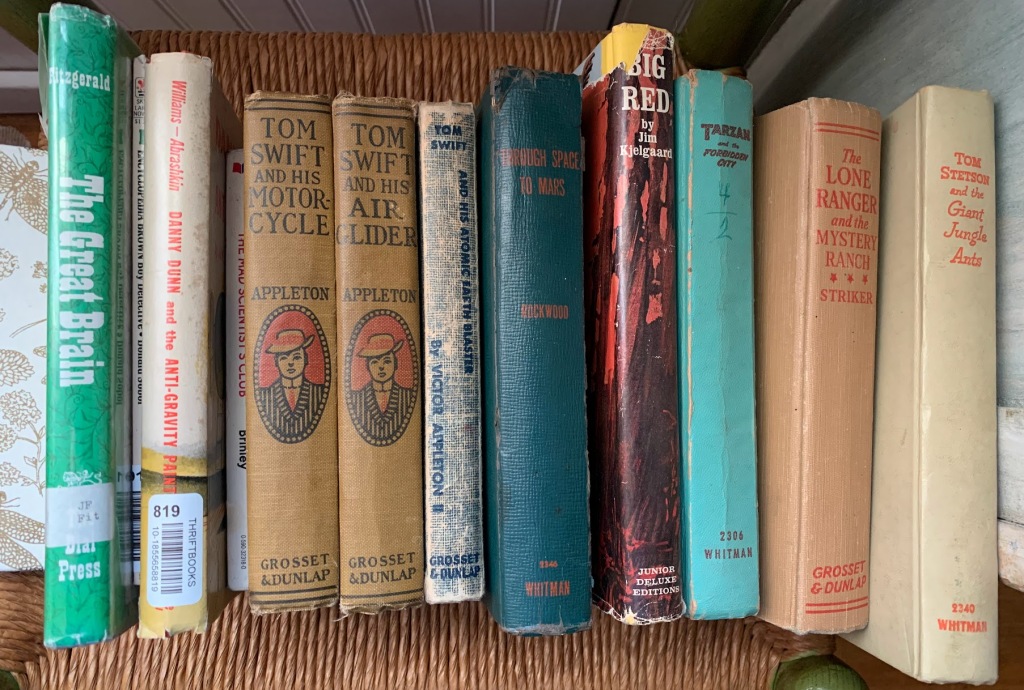Barring catastrophe*, this will be the last post I write from this house. That’s right; Other Half and I are moving. Again. And this isn’t the last time we’ll move; that’s the nature of his career. Each round of training, each new job, requires packing up all our stuff and toting it halfway across the country.
I don’t like moving, but I’ll be glad to end this chapter in our lives and start a new one. That said, I’m terrible at scene transitions, in writing and in real life, so the last few months have been a bumpy ride.
While I’m doing true confessions, I’ve recently come to terms with the fact that I like writing denouements. No, of course this isn’t a thinly veiled attempt to disguise my terrible scene transitions. The aftermath, the cleaning up after the Big Battle, the ‘what do we do next?’ moments between characters are almost as interesting as the actual climax, and those moments don’t get a lot of attention in typical stories. There’s a lot of room for character development and relationship building when your characters have just been through a jarring or traumatic experience, and it’s fun to explore that as a writer, especially if you’re writing a series, where some of the denouement’s events could be very relevant in a later book.
The tricky part is making it interesting for the reader- or at least, interesting enough that they’re willing to forgive your departure from normal story structure. Usually, the denouement, the post-climax scene, is just that- a scene showing how all the various threads are wound up and tied off, then the story ends. I keep wanting to put multiple chapters in place of that single scene.
Or I squash the denouement into two or three sentences, which is nearly as bad, though it does have the benefit of not boring the reader.
The process of moving has included both, interestingly enough. We started packing in January, way too early, and Other Half’s work obligations mean he’s going to be doing all of his last minute packing at, you guessed it, the last minute. The author of this story has a weird sense of pacing, too.
(Yes, yes, I’m the author of my story. But the universe gets a say, too, and it’s had a lot to say on the subject of hurry up and wait lately)
What’s a poor author to do? I see two reasonable solutions:
– if you’re writing the kind of story that requires a certain structure, write the thing however you please, then edit ruthlessly. Trim that denouement; beef up that climax, move paragraphs- or entire scenes- around to tell a coherent narrative within the structure you want.
– if you’re writing in a less structured style, write the thing however you please, then don’t edit as ruthlessly. It’s sounds simple, but the lack of guidelines means you have to make it up on the fly, and it can be difficult to do that and keep the story interesting for the reader at the same time.
Whatever you write, someone’s going to love it and someone’s going to hate it. Sticking to normal story structure might make the story more accessible to a larger number of readers, but striking out into the unknown might get your name in writer’s manuals as the inventor of an entirely new story structure.
Right now, I’m striking out into the unknown, and man, is it a weird experience.
*The ‘barring catastrophe’ part is important; over the past couple of months, Other Half and I have been dealing with an increasing number and severity of hiccups that, while not actively preventing the move, have made it rather more difficult. And we still have a couple of weeks to go; I’m waiting for the other shoe(s) to drop from this little centipede. The silver lining to that cloud is that we’re now firmly in agreement: we don’t want to live in this city any more, or ever again. Previously, I’d been open to the possibility. Now, not so much.




8 responses to “Endings and New Chapters”
I know some people streamline their wrapups and then do a short story for subscribers that deals with additional wrapup.
Yeah, I’m leaning in that direction, or possibly a collection of deleted scenes and other points of view that didn’t make it into the main story.
Moves are hard. I hope yours goes well.
I like the denouement phase myself, and tend to indulge a bit, along the lines of giving the events a chance to settle and letting the characters breathe again. The whole “there and back again” concept almost presupposes a recognition of reunion, satisfaction, rueful memories, settled grief, each character in his own way.
Of course, it never hurts if something odd or unexpected makes itself faintly visible for just a moment, something that a possible next book might decide to explore… 🙂
One of my (still mostly unwritten, but I’m working on it) fantasy series began, in part, when two related ideas clashed in my head:
1. Most high fantasy series build up to a great war, modeling themselves on Tokien in one way or another.
2. One of the most interesting periods in American fiction, both pulp and “literary”, is the immediate aftermath of World War II. Crime/noir fiction in particular flourished in this period in large part because of the postwar conditions.
So I thought, “What if a fantasy series began after the war was over, but the post-war order was still working itself out?”
Those two ideas, along with (at least) two others, are why I’ve got something like half of Ex-Ministers of Fate written, and ideas for how the series continues after that as well.
Hope the move goes well, and both of you drive carefully.
Sounds cool!
https://djasonfleming.locals.com/post/5219053/ex-ministers-of-fate-chapter-one
I wrote two sequel novelettes to suppress the impulse to put the stories in the epilogue. . .